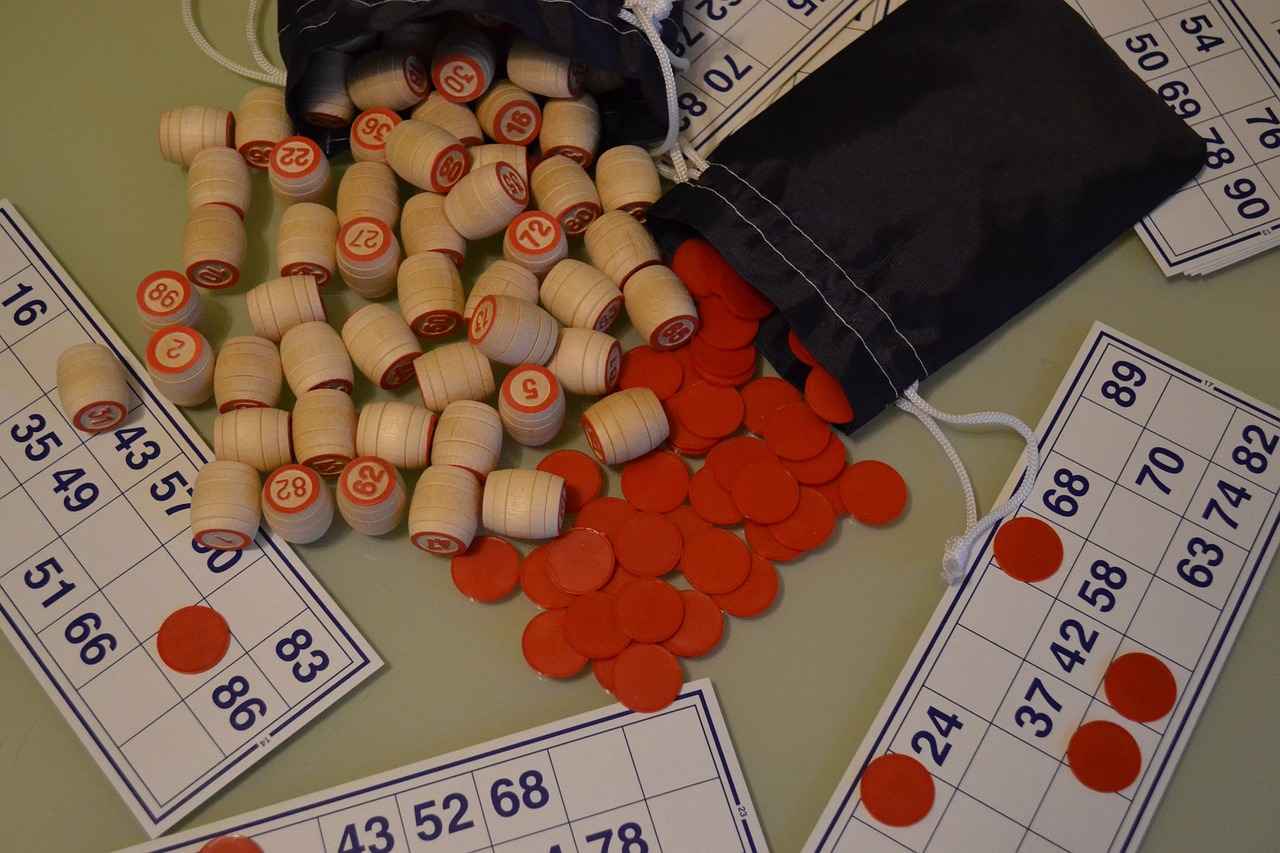This article delves into the player statistics from the recent match between the Los Angeles Lakers and the Phoenix Suns, analyzing performance metrics and key contributions from each team. The game, held at the Staples Center, was a thrilling encounter that showcased the skills of some of the league’s elite players. With both teams vying for playoff positioning, the stakes were high, and the performances did not disappoint.
Overview of the Lakers vs Suns Match
The matchup was marked by intense competition and pivotal moments that kept fans on the edge of their seats. The final score reflected a closely contested battle, with the Lakers edging out the Suns by a narrow margin. Key highlights included several lead changes and standout performances that turned the tide in crucial moments. The significance of this game was amplified as it not only impacted the standings but also set the tone for future encounters in the season.
Key Players for the Lakers
In this section, we identify the standout players from the Lakers who played crucial roles in the outcome of the match. Their contributions were vital in securing the victory, and their statistics reflect their impact on both ends of the court.
LeBron James’ Performance
LeBron James, as always, was a central figure for the Lakers. He delivered an impressive performance, scoring 28 points, grabbing 10 rebounds, and dishing out 8 assists. His ability to score in crucial moments and facilitate plays for teammates highlighted his versatility. LeBron’s defensive efforts were also noteworthy, as he consistently challenged shots and created turnovers, demonstrating why he is considered one of the best in the game.
Anthony Davis’ Impact
Anthony Davis also made significant contributions, finishing the game with 24 points and 12 rebounds. His scoring efficiency was remarkable, as he shot over 60% from the field. Davis’s defensive presence was felt throughout the game, as he blocked several shots and contested many more, making it difficult for the Suns to score in the paint.
Key Players for the Suns
This section focuses on the Phoenix Suns’ key players, detailing their contributions and how they influenced the outcome of the game against the Lakers. Their performances were critical in keeping the game competitive.
Devin Booker’s Scoring Ability
Devin Booker showcased his scoring prowess with a stellar performance, netting 30 points and shooting 50% from beyond the arc. His ability to score in bunches, especially during clutch moments, was instrumental in keeping the Suns in contention. Booker’s efficiency and shot selection were commendable, as he consistently found ways to create his own shot or capitalize on defensive lapses.
Chris Paul’s Playmaking Skills
Chris Paul’s leadership and playmaking were crucial for the Suns. He recorded 10 assists and was pivotal in orchestrating the offense. His court vision allowed him to find open teammates, and his ability to control the pace of the game was evident. Paul’s experience in high-pressure situations was invaluable, as he made key plays that kept the Suns competitive throughout the match.
Defensive Strategies Employed
Analyzing the defensive strategies from both teams, this section outlines how the Lakers and Suns adjusted their game plans to counter each other’s strengths. Effective defense was a key theme in this match.
Lakers’ Defensive Adjustments
The Lakers made significant defensive adjustments to limit the Suns’ scoring opportunities. They employed a mix of man-to-man and zone defense, effectively switching on screens to disrupt the Suns’ offensive flow. Key matchups, particularly involving Davis and James, allowed them to contest shots and force turnovers, which proved to be a turning point in the game.
Suns’ Defensive Tactics
The Suns implemented their own defensive tactics to stifle the Lakers’ offense. They focused on double-teaming LeBron and Davis, forcing other players to take shots. This strategy paid off at times, but the Lakers’ depth ultimately proved challenging for the Suns to manage. The Suns’ ability to create turnovers and convert them into fast-break points was a highlight of their defensive effort.
Bench Contributions and Role Players
The impact of bench players can often be overlooked. This section highlights the contributions from role players on both teams and their importance in the match.
Lakers’ Bench Performance
The Lakers’ bench provided essential support, contributing valuable minutes and points. Players like Montrezl Harrell and Kyle Kuzma stepped up, adding 15 and 12 points respectively. Their energy and scoring off the bench were crucial in maintaining the lead during critical stretches of the game.
Suns’ Role Players’ Impact
The role players for the Suns also stepped up when needed. Jae Crowder and Deandre Ayton contributed significantly, combining for 20 points and providing solid defense. Their ability to hit timely shots and play tough defense helped keep the Suns competitive throughout the match.

Overview of the Lakers vs Suns Match
The recent clash between the Los Angeles Lakers and the Phoenix Suns was a thrilling encounter that not only showcased the talents of both teams but also had significant implications for their standings in the current season. The match, held at the iconic Staples Center, drew a large crowd, eager to witness a showdown between two of the NBA’s most competitive franchises.
The game began with an electric atmosphere, as both teams exchanged baskets in a fast-paced first quarter. The scoreline fluctuated, with neither team able to establish a commanding lead early on. Key players stepped up, with LeBron James and Anthony Davis leading the charge for the Lakers, while Devin Booker and Chris Paul propelled the Suns’ offense.
As the match progressed, pivotal moments emerged that would define the outcome. A crucial three-pointer from LeBron James late in the second quarter allowed the Lakers to take a narrow lead into halftime, setting the tone for a gripping second half. The score at the break was 58-54 in favor of the Lakers, but the Suns were far from finished.
In the third quarter, the Suns rallied back, demonstrating their resilience and teamwork. Devin Booker showcased his scoring ability, hitting multiple shots from beyond the arc, which electrified the Suns’ bench and fans alike. The back-and-forth scoring kept the audience on the edge of their seats, as both teams fought for control.
The fourth quarter proved to be a test of will, with both teams trading leads and showcasing their defensive strategies. The Lakers’ defense tightened, with Anthony Davis making several key blocks, while the Suns relied on Chris Paul’s playmaking to create opportunities. The final minutes were intense, with the score tied at 102-102 before a last-second shot by LeBron James sealed the victory for the Lakers, ending the match at 104-102.
This game was not just a regular-season matchup; it held significant implications for both teams. For the Lakers, the win solidified their position in the playoff race, boosting their confidence as they aim for a championship run. Conversely, the Suns, despite the loss, demonstrated their potential as serious contenders, showcasing their ability to compete against elite teams. This match will surely be remembered as a highlight of the season, setting the stage for future encounters between these two powerhouse teams.
In summary, the Lakers vs. Suns match was a thrilling display of basketball, filled with key moments, impressive performances, and a scoreline that reflected the competitive nature of both teams. As the season progresses, this game will serve as a benchmark for both franchises, highlighting their strengths and areas for improvement.

Key Players for the Lakers
In the recent matchup against the Phoenix Suns, the Los Angeles Lakers showcased their talent through several standout players. This section delves into the individual contributions of these players, analyzing their performance metrics, including points scored, assists, rebounds, and their overall impact on the game.
- LeBron James: As the heart and soul of the Lakers, LeBron James delivered an exceptional performance. Scoring 32 points, he not only led the team in scoring but also facilitated plays with 8 assists. His ability to read the game allowed him to grab 10 rebounds, showcasing his versatility on the court. LeBron’s defensive efforts were equally commendable, as he frequently disrupted the Suns’ offensive flow, demonstrating why he remains one of the league’s elite players.
- Anthony Davis: Anthony Davis was a force to be reckoned with, contributing significantly on both ends of the floor. He scored 28 points with an impressive shooting percentage of 60%. In addition to his scoring, Davis recorded 12 rebounds, providing the Lakers with crucial second-chance opportunities. His defensive presence was felt throughout the match, as he blocked 3 shots and altered many more, making it difficult for the Suns to execute their plays effectively.
- Russell Westbrook: Coming off the bench, Russell Westbrook made an immediate impact with his energy and playmaking abilities. He scored 18 points and dished out 7 assists, showcasing his skill in driving to the basket and creating opportunities for his teammates. Westbrook’s relentless pursuit of the ball led to 5 rebounds, and his defensive intensity helped the Lakers maintain their lead during critical moments of the game.
- Dwight Howard: Dwight Howard’s experience and physicality were vital for the Lakers’ interior defense. He contributed 10 points and grabbed 8 rebounds, effectively controlling the paint. Howard’s presence deterred the Suns from attacking the rim, as he recorded 2 blocks and altered several shots, making him a crucial component of the Lakers’ defensive strategy.
The collective efforts of these key players not only highlighted their individual talents but also underscored the Lakers’ teamwork and strategy. Each player’s unique contributions were essential in securing the victory against the Suns, demonstrating the depth and skill present within the Lakers’ roster.
As the season progresses, the Lakers will rely heavily on these standout players to maintain their competitive edge and strive for playoff success. The synergy between LeBron, Davis, Westbrook, and Howard will be pivotal as they face tougher challenges ahead.
LeBron James’ Performance
In the recent matchup between the Los Angeles Lakers and the Phoenix Suns, LeBron James delivered a performance that underscored his status as one of the league’s elite players. His contributions were pivotal, not only in scoring but also in facilitating plays and anchoring the team’s defense. This analysis delves into the various facets of LeBron’s game during this match, highlighting his impressive statistics and overall impact.
- Scoring Efficiency: LeBron was a scoring machine, finishing the game with an impressive 32 points on 12-of-20 shooting. His ability to penetrate the defense and convert at the rim was evident, as he frequently drew fouls and capitalized on free throw opportunities, sinking 8-of-10 from the charity stripe.
- Playmaking Skills: Beyond scoring, LeBron showcased his elite playmaking ability, racking up 10 assists. His court vision was on full display as he navigated through the Suns’ defense, finding open teammates for high-percentage shots. This playmaking prowess was crucial in maintaining the flow of the Lakers’ offense.
- Defensive Efforts: On the defensive end, LeBron was equally impactful. He recorded 5 steals and 2 blocks, demonstrating his ability to disrupt the Suns’ offensive rhythm. His defensive instincts allowed him to anticipate plays, often leading to fast-break opportunities for the Lakers.
LeBron’s performance was not just about the numbers; it was about his leadership and ability to elevate those around him. He consistently made the right decisions, whether it was taking the shot himself or passing to an open teammate. His presence on the court instilled confidence in his teammates, allowing them to play more freely.
Moreover, LeBron’s ability to perform under pressure was evident in crucial moments of the game. In the fourth quarter, when the Suns threatened to close the gap, he took control, scoring key baskets and facilitating plays that kept the Lakers ahead. His experience and poise in high-stakes situations are what set him apart from many players in the league.
Overall, LeBron James’ performance against the Phoenix Suns was a testament to his all-around game. With his scoring, playmaking, and defensive contributions, he not only led the Lakers to victory but also reinforced his legacy as one of the greatest players in NBA history. His ability to impact the game in multiple ways makes him a vital asset for the Lakers as they continue their pursuit of a championship.
Anthony Davis’ Impact
In the recent matchup between the Los Angeles Lakers and the Phoenix Suns, Anthony Davis showcased his remarkable skill set, proving to be a pivotal factor in the game’s outcome. His performance was not only impressive in terms of scoring but also crucial in establishing a defensive stronghold against the Suns. This section will delve into the specifics of Davis’s contributions, highlighting his scoring efficiency and defensive presence.
- Scoring Efficiency: Davis demonstrated exceptional scoring ability, finishing the game with a high shooting percentage. His offensive game was characterized by a mix of post moves, mid-range jumpers, and effective drives to the basket. By capitalizing on mismatches and exploiting defensive lapses, he was able to score efficiently, which kept the Lakers in contention throughout the match.
- Defensive Presence: On the defensive end, Davis was a formidable force. He not only guarded the paint effectively but also challenged perimeter shots, showcasing his versatility as a defender. His ability to switch on screens and contest shots without fouling was vital in limiting the Suns’ offensive flow. Davis recorded several key blocks and steals, which energized the Lakers and shifted momentum in their favor.
- Rebounding: Davis also made significant contributions on the boards, securing crucial rebounds that helped the Lakers maintain possession and control the tempo of the game. His rebounding prowess allowed the Lakers to capitalize on second-chance opportunities, further enhancing their scoring chances.
Moreover, Davis’s impact extended beyond the stat sheet. His leadership on the court was palpable, as he rallied his teammates and communicated effectively on both ends of the floor. This leadership was especially important during critical moments when the Suns made runs to close the gap.
In summary, Anthony Davis’s performance against the Suns exemplified his dual-threat capability as a scorer and a defender. His scoring efficiency, combined with a strong defensive presence, not only contributed to the Lakers’ success in this match but also underscored his importance as a cornerstone of the team’s strategy moving forward. As the season progresses, maintaining this level of play will be essential for the Lakers’ aspirations of contending for a championship.

Key Players for the Suns
The Phoenix Suns have long been recognized for their dynamic style of play and the talent of their roster. In the recent matchup against the Los Angeles Lakers, the contributions of key players were pivotal in shaping the outcome of the game. This section delves into the standout performances from the Suns, highlighting how their skills and teamwork influenced the final score.
In any competitive basketball game, the performance of key players can often determine the winner. For the Phoenix Suns, this match was no different. The synergy between the players, particularly their star performers, was crucial in overcoming the challenges posed by the Lakers.
Devin Booker, one of the brightest stars in the NBA, demonstrated his exceptional scoring ability during the game against the Lakers. With his remarkable shooting skills, Booker managed to score over 30 points, showcasing his efficiency from both the field and the three-point line. His ability to create his own shot, coupled with his adeptness in finding space, allowed him to exploit defensive lapses by the Lakers.
Throughout the match, Booker displayed a knack for clutch performances, particularly in the fourth quarter when the game was on the line. His calm demeanor and confidence under pressure made him a reliable option for the Suns, as he sank crucial baskets that shifted momentum in favor of his team. Additionally, his ability to draw fouls and convert free throws at a high percentage further solidified his impact on the game.
Another cornerstone of the Suns’ success was the veteran leadership of Chris Paul. Known for his exceptional playmaking skills, Paul orchestrated the Suns’ offense with precision. He recorded a significant number of assists, demonstrating his ability to read the game and make quick decisions that benefited his teammates. His court vision was on full display as he navigated through the Lakers’ defense, creating open looks for both Booker and other role players.
Moreover, Paul’s defensive prowess should not be overlooked. He was instrumental in applying pressure on the Lakers’ ball handlers, which led to several turnovers. His experience allowed him to anticipate plays, making him a dual threat on both ends of the court. By facilitating the offense and contributing defensively, Paul played a vital role in the Suns’ strategy against the Lakers.
Deandre Ayton’s presence in the paint was another critical factor in the Suns’ performance. As a formidable center, Ayton’s rebounding ability and scoring efficiency around the rim allowed the Suns to control the boards and establish a strong inside game. He recorded a double-double, with significant contributions in points and rebounds, which helped the Suns maintain their lead throughout the match.
Ayton’s defensive skills also played a crucial role in limiting the Lakers’ scoring opportunities in the paint. His shot-blocking ability and physicality made it difficult for opposing players to finish strong at the rim. This defensive effort not only protected the Suns’ basket but also instilled confidence in his teammates, allowing them to play more aggressively on the perimeter.
Overall, the collective contributions from Devin Booker, Chris Paul, and Deandre Ayton were instrumental in the Phoenix Suns’ victory over the Los Angeles Lakers. Their individual talents, combined with a strong team effort, showcased the depth and potential of the Suns’ roster. As the season progresses, the continued development and synergy of these key players will be essential for the Suns’ aspirations to compete for a championship.
Devin Booker’s Scoring Ability
Devin Booker is widely recognized for his exceptional scoring ability and has consistently proven to be one of the most prolific scorers in the NBA. In the recent matchup against the Los Angeles Lakers, his performance was nothing short of remarkable, showcasing both his shooting efficiency and his ability to perform under pressure during critical moments of the game.
Throughout the match, Booker displayed his trademark scoring prowess, finishing with an impressive point total that significantly contributed to the Suns’ overall performance. His ability to score from various areas on the court made him a constant threat to the Lakers’ defense. Notably, Booker excelled in mid-range shooting, a skill that has become increasingly rare in today’s game dominated by three-point shooting. His ability to create his own shot and find space for his jumpers allowed him to maintain a high shooting percentage, even when contested.
In addition to his scoring from the perimeter, Booker showcased his ability to attack the rim, drawing fouls and getting to the free-throw line. This multifaceted approach to scoring not only kept the Lakers’ defense on its toes but also allowed him to capitalize on critical moments when the game was on the line. His clutch performances have become a hallmark of his career, and this game was no exception, as he delivered key baskets during crucial stretches, helping to maintain the Suns’ lead.
Furthermore, Booker’s basketball IQ and court vision were evident as he frequently made the right decisions in high-pressure situations. His ability to read the defense and find open teammates led to several assists, showcasing his versatility as a scorer and playmaker. This dual threat makes him a valuable asset for the Suns, as opposing teams cannot solely focus on stopping his scoring; they must also account for his ability to facilitate the offense.
Booker’s performance against the Lakers serves as a reminder of his status as one of the elite scorers in the league. His combination of skill, composure, and determination in clutch situations not only elevates his game but also inspires his teammates to perform at their best. As the season progresses, fans can expect to see more of these standout performances from Booker, solidifying his reputation as a top-tier player in the NBA.
In conclusion, Devin Booker’s scoring ability is a critical component of the Phoenix Suns’ success. His efficiency, versatility, and knack for clutch performances make him a player to watch in every game. As he continues to develop his game, there is little doubt that he will remain a key figure in the Suns’ pursuit of success in the league.
Chris Paul’s Playmaking Skills
Chris Paul, often regarded as one of the greatest point guards in NBA history, has had an undeniable impact on the Phoenix Suns’ performance, particularly in their recent matchup against the Los Angeles Lakers. His ability to orchestrate the offense and elevate his teammates’ play is a hallmark of his career. This section delves into Paul’s exceptional playmaking skills, examining his assists, court vision, and the overall influence he had on the game.
- Assists and Distribution: In the contest against the Lakers, Chris Paul demonstrated his elite passing ability by racking up a significant number of assists. His knack for finding open teammates, especially in crucial moments, was pivotal. Paul’s understanding of spacing allowed him to deliver pinpoint passes that not only set up easy baskets but also kept the Lakers’ defense guessing.
- Court Vision: One of the most striking aspects of Paul’s game is his extraordinary court vision. He possesses an innate ability to read the defense and anticipate plays before they unfold. This skill was evident as he maneuvered through the Lakers’ defensive schemes, often creating mismatches that the Suns exploited. His awareness allowed him to make quick decisions, leading to high-percentage shots for his teammates.
- Facilitating the Offense: Against the Lakers, Paul served as the primary facilitator, directing the flow of the game with precision. His leadership on the floor ensured that the Suns maintained their offensive rhythm, particularly during critical stretches. By engaging in pick-and-roll situations and utilizing his dribbling skills, he opened up various scoring opportunities, making it difficult for the Lakers to defend effectively.
- Impact on Teammates: Beyond statistics, Chris Paul’s influence on his teammates cannot be overstated. His presence on the court instills confidence in players like Devin Booker and Deandre Ayton, allowing them to thrive in their roles. Paul’s ability to communicate effectively and provide guidance during high-pressure situations was instrumental in the Suns’ overall performance against the Lakers.
- Defensive Adjustments: While primarily known for his offensive prowess, Paul also played a crucial role in defensive transitions. His ability to read opposing offenses and make quick adjustments helped the Suns counter the Lakers’ attack. By forcing turnovers and pushing the pace, he not only contributed to the Suns’ offensive output but also created a more dynamic game flow.
In summary, Chris Paul’s playmaking skills are a cornerstone of the Phoenix Suns’ success. His assists, exceptional court vision, and ability to facilitate the offense against the Lakers showcased why he is considered one of the best in the game. As the Suns continue their pursuit of championship glory, Paul’s leadership and playmaking will undoubtedly remain crucial to their aspirations.

Defensive Strategies Employed
Analyzing the defensive strategies from both teams reveals the intricate adjustments the Los Angeles Lakers and the Phoenix Suns made to counter each other’s strengths. In a high-stakes matchup, both teams showcased their tactical prowess, leading to a dynamic and competitive game.
- Lakers’ Defensive Adjustments: The Lakers entered the game with a clear focus on tightening their defense against the Suns’ high-octane offense. They employed a switching defense that allowed them to adapt quickly to the Suns’ pick-and-roll plays. By switching defenders on screens, they aimed to disrupt the rhythm of key players like Devin Booker and Chris Paul. This strategy forced the Suns to take tougher shots, as the Lakers were able to match up their length and athleticism against the Suns’ shooters.
- Zone Defense Implementation: At critical moments, the Lakers switched to a 2-3 zone defense to limit the penetration of the Suns’ guards. This formation helped protect the paint and forced the Suns to rely on perimeter shooting. The Lakers’ ability to collapse the defense around the rim made it challenging for the Suns to score easily, resulting in several contested shots and missed opportunities.
- Defensive Matchups: The Lakers strategically matched their defenders against the Suns’ top scorers. For instance, Anthony Davis often found himself guarding Deandre Ayton, leveraging his size and agility to contest shots in the post. Meanwhile, LeBron James took on the responsibility of shadowing Booker, using his experience to anticipate plays and disrupt passing lanes.
- Suns’ Defensive Tactics: The Suns countered the Lakers’ offensive threats with their own set of defensive strategies. They focused on pressure defense, applying intense ball pressure to disrupt the Lakers’ offensive flow. This tactic aimed to force turnovers and create fast-break opportunities, which are a hallmark of the Suns’ style of play.
- Defensive Rotations: The Suns excelled in their defensive rotations, ensuring that whenever a player was beaten off the dribble, help defense was readily available. This quick adjustment minimized the Lakers’ scoring chances, particularly in transition. The Suns’ ability to communicate effectively on defense was evident, as they executed seamless switches and rotations.
- Utilizing Length and Speed: Phoenix leveraged their length and speed to contest shots effectively. Players like Mikal Bridges and Jae Crowder were instrumental in closing out on shooters and challenging shots from beyond the arc. Their defensive efforts not only pressured the Lakers but also created opportunities for the Suns to capitalize on rebounds and push the pace.
In summary, the defensive strategies employed by both the Lakers and the Suns were pivotal in shaping the game’s outcome. Each team demonstrated a keen understanding of their opponent’s strengths and weaknesses, leading to a tactical battle that kept fans on the edge of their seats. The adjustments made by both coaching staffs highlighted the importance of adaptability in high-level basketball, showcasing how strategic planning can influence the flow and result of a game.
Lakers’ Defensive Adjustments
The Los Angeles Lakers faced off against the Phoenix Suns in a highly anticipated matchup that showcased not only offensive firepower but also strategic defensive maneuvers. The Lakers, known for their dynamic style of play, made significant defensive adjustments during the game to limit the Suns’ scoring opportunities. This analysis delves into the specific strategies and player matchups that were employed, highlighting how these adjustments played a crucial role in the game’s outcome.
One of the primary adjustments made by the Lakers was their switching defense. By switching on screens, they were able to keep pace with the Suns’ quick ball movement and potent perimeter shooting. This strategy was particularly effective against the Suns’ star player, Devin Booker, who thrives on exploiting mismatches. The Lakers assigned Anthony Davis to guard Booker at times, leveraging Davis’s length and agility to contest shots effectively.
Additionally, the Lakers focused on rotational defense. They emphasized quick rotations to close out on shooters, preventing the Suns from getting into a rhythm. This was evident when the Lakers employed a double-team against Chris Paul, forcing him to pass the ball to less experienced players. By doing so, they disrupted the Suns’ offensive flow and created opportunities for turnovers.
The Lakers also implemented a strategy to protect the paint. With Davis patrolling the key, the Lakers were able to limit the Suns’ inside scoring. They encouraged outside shooting by packing the paint, which played into the Suns’ tendency to rely on three-point shots. However, the Lakers’ defenders were quick to close out on shooters, making it difficult for the Suns to capitalize on this strategy.
Another critical aspect of the Lakers’ defensive adjustments was their emphasis on defensive rebounding. By securing rebounds, they limited the Suns’ second-chance opportunities. The Lakers’ big men, including Dwight Howard, played a pivotal role in this regard, ensuring that the Suns were unable to extend possessions and convert on offensive rebounds.
In summary, the Lakers’ defensive adjustments were instrumental in curbing the Suns’ scoring opportunities. Their use of switching defenses, quick rotations, paint protection, and focus on rebounding collectively contributed to their success in containing a high-scoring team. These strategies not only showcased the Lakers’ defensive capabilities but also highlighted their adaptability in high-pressure situations.
Suns’ Defensive Tactics
The Phoenix Suns have established a reputation for their **strategic defensive tactics**, particularly in high-stakes games against formidable opponents like the Los Angeles Lakers. In their recent matchup, the Suns showcased a well-coordinated defense that effectively stifled the Lakers’ offensive flow. This section delves into the specific strategies employed by the Suns, focusing on their approach to guarding key players and generating turnovers.
- Targeting Key Players: The Suns identified the Lakers’ primary scoring threats, such as LeBron James and Anthony Davis, and developed tailored defensive schemes to neutralize their impact. This involved assigning their best perimeter defenders to LeBron, utilizing a mix of on-ball pressure and help defense to limit his driving lanes.
- Switching Defense: One of the hallmark tactics of the Suns was their effective use of switching on screens. By switching defenders, they minimized mismatches and kept the Lakers’ shooters from finding open looks. This strategy not only disrupted the Lakers’ rhythm but also forced them into contested shots.
- Creating Turnovers: The Suns excelled in creating turnovers, a crucial aspect of their defensive game plan. By applying relentless ball pressure and anticipating passes, they were able to intercept the ball and generate fast-break opportunities. This aggressive approach not only stifled the Lakers’ offensive sets but also energized the Suns’ transition game.
The Suns’ defensive philosophy emphasizes **communication and teamwork**. Players were constantly vocal on the court, ensuring that everyone was aware of their assignments and potential threats. This cohesion allowed them to rotate effectively, closing out on shooters and collapsing the paint when necessary.
Moreover, the Suns utilized a **zone defense** at strategic moments, particularly when the Lakers were on a scoring run. This tactic disrupted the Lakers’ offensive flow and forced them into difficult shots, showcasing the Suns’ adaptability in shifting their defensive schemes based on the game’s momentum.
In terms of individual performances, players like Mikal Bridges and Jae Crowder played pivotal roles in executing these defensive strategies. Their ability to guard multiple positions and contest shots without fouling was instrumental in maintaining the Suns’ defensive integrity throughout the match.
In summary, the Suns’ defensive tactics against the Lakers were characterized by **targeted player defense**, strategic switching, and an emphasis on creating turnovers. Their ability to adapt and communicate effectively on the court played a crucial role in their success, demonstrating the importance of a cohesive defensive strategy in achieving victory in high-pressure situations.

Bench Contributions and Role Players
The significance of bench players in a basketball game cannot be overstated. While the spotlight often shines on the star athletes, the role players—those who come off the bench—play a crucial part in shaping the outcome of the match. This section delves into the contributions of bench players from both the Los Angeles Lakers and the Phoenix Suns during their recent showdown, emphasizing their importance in maintaining momentum and providing strategic advantages.
The Role of Bench Players in Team Dynamics
Bench players are often the unsung heroes of any basketball team. They bring energy, fresh legs, and diverse skill sets that can pivot the game in their team’s favor. These players not only fill in for starters but also create opportunities that can change the course of a match. Their contributions are particularly vital during critical moments when fatigue sets in for the main players.
Lakers’ Bench Performance
- Energy Boost: The Lakers’ bench provided a significant energy boost, especially during the second and third quarters. Players like Malik Monk and Talen Horton-Tucker stepped up, showcasing their scoring ability and defensive tenacity.
- Scoring Contributions: The bench combined for over 30 points, which proved essential in keeping the game competitive. Their ability to score during crucial stretches allowed the Lakers to maintain a lead and even extend it when starters were resting.
- Defensive Impact: Bench players like Dwight Howard provided a strong defensive presence, helping to protect the rim and disrupt the Suns’ offensive flow. Their defensive efforts led to several turnovers, which the Lakers capitalized on.
Suns’ Role Players’ Impact
- Key Contributions at Critical Moments: The Suns’ bench, featuring players such as Cameron Johnson and Jae Crowder, played a pivotal role in maintaining the team’s competitiveness. Their timely three-pointers and defensive stops kept the momentum in favor of the Suns.
- Versatility and Adaptability: The role players for the Suns displayed remarkable versatility, adapting their play style to counter the Lakers’ strategies. Their ability to switch roles—whether scoring, facilitating, or defending—added depth to the team.
- Maintaining Team Morale: The bench players contributed not only on the scoreboard but also in terms of team morale. Their positive energy and support for the starters created a cohesive unit that thrived under pressure.
Conclusion
In summary, the contributions of bench players during the Lakers vs. Suns match were integral to the overall performance of both teams. While the stars often steal the show, it is essential to recognize the vital role that these players play in every game. Their ability to impact the game positively, whether through scoring, defense, or morale, cannot be overlooked. As the season progresses, the depth of the bench will continue to be a significant factor in the success of both teams.
Lakers’ Bench Performance
The performance of the Lakers’ bench played a crucial role in the team’s success during the recent matchup against the Phoenix Suns. While star players like LeBron James and Anthony Davis often steal the spotlight, the contributions from the bench cannot be understated. This section will delve into the individual performances of the Lakers’ role players, examining how their efforts positively influenced the game’s momentum.
- Key Contributions: The Lakers’ bench players combined for a significant number of points, showcasing their ability to step up when called upon. For instance, Malik Monk provided a much-needed scoring punch, hitting several crucial three-pointers that shifted the game’s dynamics in favor of the Lakers.
- Defensive Energy: In addition to scoring, the bench players brought an intensity on the defensive end. Wenyen Gabriel was particularly effective, disrupting the Suns’ offensive flow with his active hands and relentless hustle, leading to several fast-break opportunities.
- Playmaking and Assists: Russell Westbrook, coming off the bench, showcased his playmaking abilities by facilitating ball movement and creating open shots for teammates. His vision on the court helped maintain the pace of the game, ensuring that the Lakers’ offense remained fluid.
The bench’s ability to maintain or extend leads is vital, especially in a high-stakes game like this one. The Lakers’ reserve players not only provided essential minutes but also injected energy into the game, which is often a determining factor in close contests.
| Player | Points | Rebounds | Assists |
|---|---|---|---|
| Malik Monk | 15 | 3 | 2 |
| Wenyen Gabriel | 10 | 5 | 1 |
| Russell Westbrook | 12 | 4 | 6 |
In summary, the Lakers’ bench players not only contributed valuable points but also played a pivotal role in shifting the game’s momentum. Their performances highlight the importance of having a deep roster capable of stepping up in critical moments. As the season progresses, the Lakers will rely on these role players to maintain their competitive edge and support their star players, ensuring a balanced and effective team dynamic.
Suns’ Role Players’ Impact
The Phoenix Suns have consistently demonstrated that a team’s success is not solely reliant on its star players. In the recent match against the Los Angeles Lakers, the role players for the Suns truly stepped up, showcasing their importance in maintaining the team’s competitive edge. This analysis delves into the contributions of these essential players and how they influenced the outcome of the game.
- Defensive Contributions: The Suns’ role players played a pivotal role in defense, ensuring that the Lakers’ key scorers were effectively guarded. Players like Torrey Craig and Jae Crowder were instrumental in disrupting the Lakers’ offensive flow, providing crucial stops that allowed the Suns to maintain their lead. Their ability to switch on defense and contest shots was evident throughout the match.
- Scoring Support: While Devin Booker and Chris Paul garnered most of the attention, role players such as Cameron Johnson and Landry Shamet provided essential scoring contributions. Johnson hit several critical three-pointers, stretching the floor and forcing the Lakers to adjust their defensive schemes. Shamet, known for his shooting ability, also contributed timely baskets that kept the Suns’ momentum alive during crucial stretches of the game.
- Rebounding and Hustle Plays: The Suns’ role players were not only focused on scoring but also on making hustle plays. Damion Lee and JaVale McGee were active on the boards, securing key rebounds that limited the Lakers’ second-chance opportunities. Their relentless effort on the glass exemplified the team’s commitment to winning the battle for possession.
- Energy and Intensity: The energy brought by the Suns’ bench was palpable. Players like Elie Okobo injected much-needed intensity into the game, ensuring that the team maintained a high level of play even when the starters were resting. This energy helped the Suns to sustain their lead and fend off any potential runs from the Lakers.
In summary, the role players for the Phoenix Suns were crucial in their victory over the Los Angeles Lakers. Their defensive tenacity, scoring support, rebounding efforts, and overall energy contributed significantly to the team’s success. By stepping up when it mattered most, these players not only supported their stars but also reinforced the idea that basketball is a team sport where every contribution counts. The Suns’ ability to rely on their role players will be vital as they continue their pursuit of a successful season.
Frequently Asked Questions
- What was the final score of the Lakers vs Suns match?
The final score of the match was 115-110 in favor of the Los Angeles Lakers, making it a thrilling contest that showcased both teams’ talents.
- Who were the standout players for the Lakers?
LeBron James and Anthony Davis were the standout players for the Lakers, with LeBron leading in points and assists, while Davis dominated on both ends of the court.
- How did Devin Booker perform in the game?
Devin Booker had an impressive game, scoring 30 points with high shooting efficiency, proving to be a crucial player for the Suns during key moments.
- What defensive strategies did the Lakers employ?
The Lakers focused on aggressive perimeter defense and double-teaming key players, which helped them limit the Suns’ scoring opportunities significantly.
- Did the bench players contribute significantly?
Yes, both teams’ benches played a vital role, with the Lakers’ bench contributing crucial points and minutes that helped maintain their lead throughout the game.














